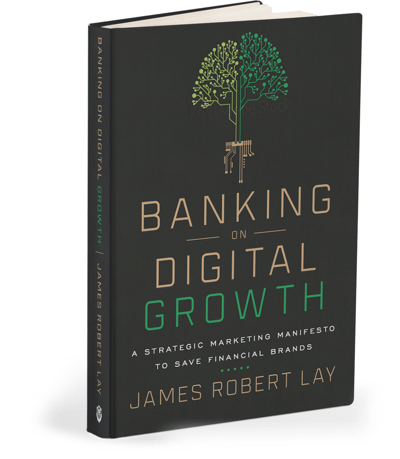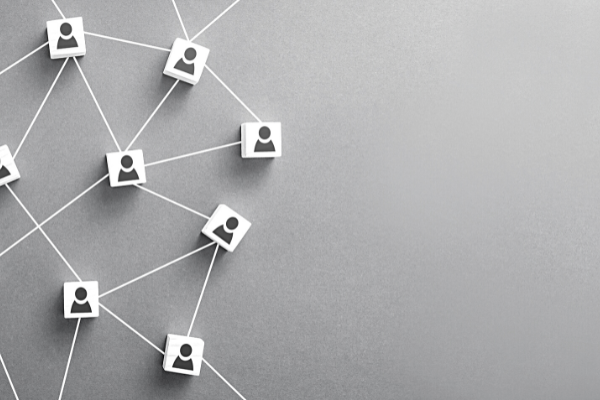"Mindset is everything." -Kelsey Weaver
Building a new community bank requires innovative thinking and a willingness to avoid the complacency that exists in the financial world. James Robert Lay, author of Banking on Digital Growth and founder of the Digital Growth Institute, interviewed two experts in the realm of building fresh connections with the community through banking.
Keith Costello is the president and CEO and Kelsey Weaver is a board member at Locality Bank of Ft. Lauderdale. Locality Bank is the first community bank to open in South Florida in more than 10 years, which was desperately needed in the community.
Why the World is Watching Locality Bank
Keith and Kelsey are veteran entrepreneurs who have seen it all in terms of managing brands and overcoming obstacles. They know how to shake up traditional thinking and teach people how to change their mindset to find new opportunities for growth.
This is evident in the many recent successes of Locality Bank, which recently acquired FDIC approval on top of several other significant milestones.
They met and surpassed a $23 million capital goal, plus they passed 29 million subscriptions and are well on their way to hitting the 30 million mark soon.
Every week, they are reaching huge new achievements that are making other financial institutions sit up and take notice.
Overcoming Fear in the Financial Sector
The financial world is sometimes at odds with digital growth. The industry is permeated with fear, intimidation, and so much caution there’s often no forward progress.
As it says in the book, Banking on Digital Growth, there are four fears:
- Fear of the unknown
- Fear of change,
- Fear of failure
- Fear of success.
It can be difficult to process complex emotions and, in a business setting, transform fear into fuel for future growth.
Fear can become an impediment.
One way of removing the impediment of fear is to view it through the lens of exhilaration. Yes, it’s scary, but it’s also a new adventure. Think of it as being on a rollercoaster or jumping with a bungee cord. There’s fear, but there’s also the exhilaration of success.
It’s also about embracing competition and embracing change. Failure is always a possibility, but we shouldn’t become so focused on it as a negative experience.
There’s plenty we can learn from failure!
Another way to look at failure is as a fun activity. It might sound strange, but it’s a way of reframing failure that works well in teams. The team can think, “If it were easy, it wouldn’t be as fun!” or “If it were easy, other people would be doing it!”
You’re innovators, and failure is acceptable in innovation.
Victory is sweeter when you crack the code.
Mindset and the Importance of Mental Clarity
There’s always stress and discomfort that comes with change. To some degree, progress requires that we become comfortable with feeling uncomfortable. The pace of change isn’t slowing down - in fact, it’s speeding up. As humans, we must learn to tolerate the discomfort that comes with working at the rapid pace of technological change.
Mindset is everything.
Our inner critics are often harsher than anyone else in the world. An innovator can’t allow themselves to get bogged down with their perceived imperfections.
On a personal level, it’s important to take care of your mind because we live in a chaotic world.
Meditation helps.
Disconnection helps.
Consider putting personal boundaries on things like social media, using apps, screen time, and even using your cell phone during certain periods.
See a Big, Bright Future in Banking
Locality Bank is a bank that was built from scratch, which comes with drawbacks and benefits. One of the benefits is not being held back by massive, old-fashioned forms of burdensome technology like legacy systems that don’t fit a new and innovative style of banking.
Locality has a strong focus on thriving relationships. It also has a mission to have better technology that allows people to use their brains and free them from mundane, repetitive tasks. This sets a new tone that helps people unite around a shared purpose.
Look at a real-world situation where this change in tone matters.
For example, imagine the experience of being turned down for a loan. It’s an anxiety-inducing experience. It’s a rejection that hurts and even if it was a business seeking the loan, the human involved takes it personally.
Locality Bank reframes this experience to feel like an acceptance instead of a rejection. Locality says, “Let me help you with your great idea. We’ll help you monitor your cash flow and set new goals.”
This puts the customer on track to finally get that $100,000 loan.
It’s a more positive and encouraging process, and it’s something almost no bank is currently doing other than Locality. Perhaps small banks don’t have the power and big banks don’t have the motivation. But a community bank with a digital focus like Locality can make it happen.
Locality works with Nymbus, a banking software company, to facilitate many tech solutions that benefit Locality’s internal and external customers.
Collaboration has opened new opportunities for innovative options that enhance customer service.
The partnership with Nymbus helps Locality differentiate itself in the marketplace, providing the technology that powers the customer experience. They’ve helped Locality with its social media presence, website, and the engineering and coding savvy it takes to do innovative things.
It’s important to point out that a partnership like this can supercharge the speed of a startup business.
Instead of accomplishing all tech-related challenges themselves, Locality can leave some of it to Nymbus and continue moving forward on other goals.
Keith and Kelsey say this has been one of the keys to Locality’s outstanding success.
Resources That Support a Positive Mindset
Kelsey recommends a book called The High Five Habit, which talks about the science of high-fiving yourself in the mirror and giving yourself a mood boost. It might sound silly, but it’s a scientifically-backed way of creating a positive mindset.
James Robert recommends Dan Sullivan’s The Gap and The Gain, which has a message about positives and negatives and the gap of the experience. It’s also about avoiding griping about the negatives of experiences and refocusing on a state of positivity and abundance.
Keith suggests the book, As a Man Thinketh, which was written in 1903 but is still relevant today and is a classic self-help book. It’s about how the mind builds your life and sets the stage for all perspectives in life.
What all of these books have in common is the idea of being a lifelong learner. You never know all there is to know in the world, so please remain open to new ideas and new experiences.
This article was originally published on January 28, 2022. All content © 2024 by Digital Growth Institute and may not be reproduced by any means without permission.





